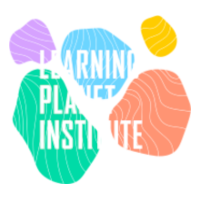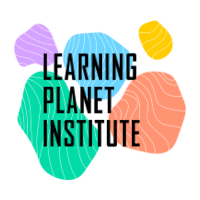The Yoma project is an initiative designed to empower young people across Africa by engaging them in challenge-based innovation, fostering their personal development, and enhancing their relational well-being. Launched with the support of UNICEF and various international partners, Yoma aims to address youth unemployment and promote skill development through real-world challenges that not only hone individual capabilities but also foster a sense of community and social impact. Within this broader framework, our team at the Interaction Data Lab from the Learning Planet Institute (LPI), in collaboration with the Artificial Intelligence Research Institute from the Spanish National Research Council (IIIA-CSIC), explored how AI can improve team dynamics and relational well-being in these challenge-based settings.
Our specific focus was on understanding how the composition of teams—based on factors such as competency diversity, gender balance, and personality traits—affects participants’ experiences and outcomes in collaborative environments. This work is important because: a) prior work on team composition mostly focused on its effect on the team outcomes and team performance, with team experience and satisfaction being overlooked; b) previous studies on challenge-based learning have shown that while such programs are effective at developing problem-solving and leadership skills, less attention has been paid to how the team dynamics themselves influence participants’ relational well-being—defined as the quality of interactions and relationships within a group, a key factor in long-term engagement and success in social impact work.
We implemented a state-of-the-art AI-driven team formation algorithm in partnership with CSIC, considering various elements such as participants’ skills, personality traits, gender, and background, to create well-balanced teams. Unlike traditional methods that form teams randomly or based solely on surface-level factors like availability, this algorithm dynamically adjusted to balance diversity and competency, ensuring that each team had members with complementary strengths and varied perspectives.
Our study focused on comparing AI-formed teams with control groups created through random selection. The total population of 97 participants was divided into 24 teams of 4 to 5 members, with 12 AI-formed and 12 control teams. We focused not only on the outputs—such as the quality of the final projects the teams produced—but also on the participants’ overall experiences, team dynamics, and the development of relational well-being. To measure this, we designed comprehensive surveys that assessed dimensions like social network growth, psychological safety, skill development, and the overall satisfaction with the group experience.
Key Insights: AI-Driven Teams and Relational Well-Being

A key finding of our study was the significant improvement in relational well-being for participants in AI-formed teams compared to those in randomly formed teams. As shown in Figure 1, AI-formed teams reported feeling more connected to their teammates, expressing higher satisfaction with the collaboration process, and feeling more valued for their contributions. These results highlight the importance of intentional team composition in collaborative learning environments, where the quality of interactions is as crucial as the final outcomes.
In addition to relational well-being, AI-formed teams exhibited stronger social network growth. Participants reported forming more meaningful connections with peers from diverse cultural and professional backgrounds. This outcome is particularly important for the Yoma project, where one of the main goals is to create lasting networks among young people that can support their future endeavors both personally and professionally.
The AI-formed teams also showed greater development in project-specific skills, particularly in areas such as media creation and activism. These teams demonstrated significantly higher skill gains compared to their control group counterparts. This finding is especially relevant given that the challenge required teams to produce media content promoting the Yoma initiative, offering participants both the opportunity to complete the task and develop valuable, practical skills that will serve them in future projects.
In terms of psychological safety—an essential component of relational well-being—participants in AI-formed teams consistently reported feeling more comfortable expressing themselves, sharing ideas, and providing feedback within their groups. This aligns with broader research on team dynamics, which suggests that when team diversity is well managed, it fosters a more inclusive environment. Participants feel safer to take risks and engage more deeply in their tasks, leading to enhanced team dynamics and a richer collaborative experience.

While AI-formed teams clearly outperformed in terms of relational well-being and social network growth, the impact on final project outcomes was less pronounced (Figure 2). Although the overall quality of the projects produced by AI-formed teams was slightly higher, the difference was not as significant as in other areas. This suggests that while effective team composition plays a critical role in enhancing the participant’s experience and skill development, the quality of the final output may also depend on additional factors, such as the complexity of the task or external pressures like time constraints.
Extending the Research to the Yoma Ecosystem
Building on these results, we are currently focusing on the broader Yoma ecosystem. Our next phase of analysis includes data from over 250 stakeholders across various African countries, gathered through in-depth surveys and interviews. This extended dataset will allow us to explore what supports relational well-being across a wider range of challenge-based activities within the Yoma platform, and whether these positive outcomes are sustained over time and across different types of challenges. For example, we will investigate whether the social networks formed during these challenges continue to function as support systems for participants, and whether the skills developed during the Yoma challenges translate into tangible benefits in their educational or professional lives.
Conclusion: AI’s Role in Enhancing Collaborative Learning
The results of our study show that AI can play a critical role in enhancing relational well-being in challenge-based learning environments, particularly by creating teams that are both diverse and complementary in terms of skills and personality. By fostering stronger social networks, improving team experiences, and developing key project-related skills, AI-driven team formation has the potential to significantly impact the long-term success and engagement of participants in initiatives like Yoma. This study aligns closely with the mission of the Learning Transitions Research Unit (UR LT), which focuses on systemic approaches to planetary transitions by leveraging AI, collective intelligence, and interdisciplinarity. Our work with AI-driven team dynamics supports UR LT’s broader objectives of transforming education and organizational structures, empowering individuals and communities to navigate transitions more effectively. This study is currently under review.
As we move forward with our research, we aim to continue exploring how these findings can be applied more broadly within the Yoma ecosystem and contribute to the creation of more effective, supportive, and inclusive environments for young people to learn, grow, and make meaningful contributions to their communities.
An article by the Interaction Data Lab team (Marc Santolini and Olga Kokshagina) from the Learning Planet Institute

who has become a group of friends/ collaborators
Learn more about:
- Yoma project
- Interaction Data Lab team and projects
- Learning Transitions Research Unit from the Learning Planet Institute






